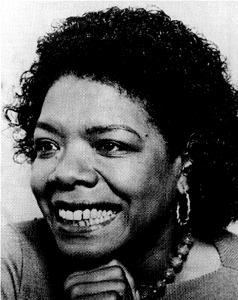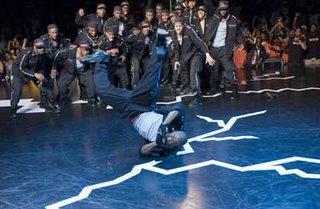A friend sent this to me, which has inspired me to write about it. When the piece is done I will post it. Until I will keep my commentaries a secret. The story was posted on this site!
New rap problem: criticism from within
Date: Friday, March 02, 2007By: NEKESA MUMBI MOODY -- AP Music Writer, Associated Press
Inside story with Jacque Reid; Topic: Is Hip Hop dead?... NEW YORK (AP) Maybe it was the umpteenth coke-dealing anthem or soft-porn music video. Perhaps it was the preening antics that some call reminiscent of Stepin Fetchit.
The turning point is hard to pinpoint. But after 30 years of growing popularity, rap music is now struggling with an alarming sales decline and growing criticism from within about the culture's negative effect on society.
Rap insider Chuck Creekmur, who runs the leading Web site Allhiphop.com, says he got a message from a friend recently "asking me to hook her up with some Red Hot Chili Peppers because she said she's through with rap. A lot of people are sick of rap ... the negativity is just over the top now."
The rapper Nas, considered one of the greats, challenged the condition of the art form when he titled his latest album "
Hip-Hop is Dead." (LISTEN NOW:
Hip Hop is Dead) It's at least ailing, according to recent statistics: Though music sales are down overall, rap sales slid a whopping 21 percent from 2005 to 2006, and for the first time in 12 years no rap album was among the top 10 sellers of the year. A recent study by the Black Youth Project showed a majority of youth think rap has too many violent images. In a poll of black Americans by The Associated Press and AOL-Black Voices last year, 50 percent of respondents said hip-hop was a negative force in American society.
Nicole Duncan-Smith grew up on rap, worked in the rap industry for years and is married to a hip-hop producer. She still listens to rap, but says it no longer speaks to or for her. She wrote the children's book "I Am Hip-Hop" partly to create something positive about rap for young children, including her 4-year-old daughter.
"I'm not removed from it, but I can't really tell the difference between Young Jeezy and Yung Joc. It's the same dumb stuff to me," says Duncan-Smith, 33. "I can't listen to that nonsense ... I can't listen to another black man talk about you don't come to the 'hood anymore and ghetto revivals ... I'm from the 'hood. How can you tell me you want to revive it? How about you want to change it? Rejuvenate it?"
Hip-hop also seems to be increasingly blamed for a variety of social ills. Studies have attempted to link it to everything from teen drug use to increased sexual activity among young girls.
Even the mayhem that broke out in Las Vegas during last week's NBA All-Star Game was blamed on hip-hoppers. "(NBA Commissioner) David Stern seriously needs to consider moving the event out of the country for the next couple of years in hopes that young, hip-hop hoodlums would find another event to terrorize," columnist Jason Whitlock, who is black, wrote on AOL.
While rap has been in essence pop music for years, and most rap consumers are white, some worry that the black community is suffering from hip-hop - from the way America perceives blacks to the attitudes and images being adopted by black youth.
But the rapper David Banner derides the growing criticism as blacks joining America's attack on young black men who are only reflecting the crushing problems within their communities. Besides, he says, that's the kind of music America wants to hear. "Look at the music that gets us popular - 'Like a Pimp,' 'Dope Boy Fresh,'" he says, naming two of his hits.
"What makes it so difficult is to know that we need to be doing other things. But the truth is at least us talking about what we're talking about, we can bring certain things to the light," he says. "They want (black artists) to shuck and jive, but they don't want us to tell the real story because they're connected to it."
Criticism of hip-hop is certainly nothing new - it's as much a part of the culture as the beats and rhymes. Among the early accusations were that rap wasn't true music, its lyrics were too raw, its street message too polarizing. But they rarely came from the youthful audience itself, which was enraptured with genre that defined them as none other could.
"As people within the hip-hop generation get older, I think the criticism is increasing," says author Bakari Kitwana, who is currently part of a lecture tour titled "Does Hip-Hop Hate Women?"
"There was a more of a tendency when we were younger to be more defensive of it," he adds.
During her '90s crusade against rap's habit of degrading women, the late black activist C. Dolores Tucker certainly had few allies within the hip-hop community, or even among young black women. Backed by folks like conservative Republican William Bennett, Tucker was vilified within rap circles.
In retrospect, "many of us weren't listening," says Tracy Denean Sharpley-Whiting, a professor at Vanderbilt University and author of the new book "Pimps Up, Ho's Down: Hip-Hop's Hold On Young Black Women."
"She was onto something, but most of us said, 'They're not calling me a bitch, they're not talking about me, they're talking about THOSE women.' But then it became clear that, you know what? Those women can be any women."
One rap fan, Bryan Hunt, made the searing documentary "Hip-Hop: Beyond Beats and Rhymes," which debuted on PBS this month. Hunt addresses the biggest criticisms of rap, from its treatment of women to the glorification of the gangsta lifestyle that has become the default posture for many of today's most popular rappers.
"I love hip-hop," Hunt, 36, says in the documentary. "I sometimes feel bad for criticizing hip-hop, but I want to get us men to take a look at ourselves."
Even dances that may seem innocuous are not above the fray. Last summer, as the "Chicken Noodle Soup" song and accompanying dance became a sensation, Baltimore Sun pop critic Rashod D. Ollison mused that the dance - demonstrated in the video by young people stomping wildly from side to side - was part of the growing minstrelization of rap music.
"The music, dances and images in the video are clearly reminiscent of the era when pop culture reduced blacks to caricatures: lazy 'coons,' grinning 'pickaninnies,' sexually super-charged 'bucks,'" he wrote.
And then there's the criminal aspect that has long been a part of rap. In the '70s, groups may have rapped about drug dealing and street violence, but rap stars weren't the embodiment of criminals themselves. Today, the most popular and successful rappers boast about who has murdered more foes and rhyme about dealing drugs as breezily as other artists sing about love.
Creekmur says music labels have overfed the public on gangsta rap, obscuring artists who represent more positive and varied aspects of black life, like Talib Kweli, Common and Lupe Fiasco.
"It boils down to a complete lack of balance, and whenever there's a complete lack of balance people are going to reject it, whether it's positive or negative," Creekmur says.
Yet Banner says there's a reason why acts like KRS-One and Public Enemy don't sell anymore. He recalled that even his own fans rebuffed positive songs he made - like "Cadillac on 22s," about staying way from street life - in favor of songs like "Like a Pimp."
"The American public had an opportunity to pick what they wanted from David Banner," he says. "I wish America would just be honest. America is sick. ... America loves violence and sex."













